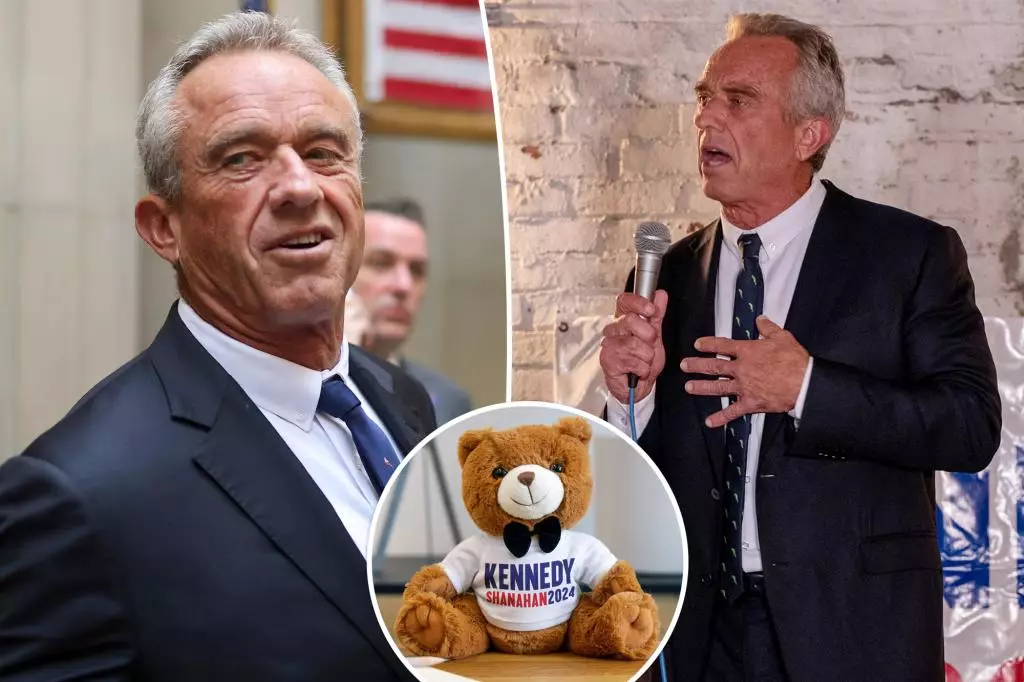Robert F. Kennedy Jr. (RFK Jr.) remains a prominent figure in American politics, often finding himself at the epicenter of controversy, both in his professional endeavors and personal life. The complexity of his narratives offers a unique lens through which we can examine the intersection of familial legacy, political allegiance, and personal integrity. Recent events surrounding him—ranging from romantic entanglements and major political endorsements to family disapproval—provide rich material for analysis.
Kennedy’s decision to endorse Donald Trump was a significant divergence from his family’s Democratic roots. The Kennedy dynasty, long associated with Democratic ideals, has expressed profound discontent with RFK Jr.’s new political affiliations. A collective statement from several family members suggested that they view his actions as a betrayal of the values upheld by their patriarch. The strong language indicates not merely disagreement but an emotional fracture within the family unit.
Kennedy’s endorsement is a clear attempt to carve out a niche in a heavily polarised political landscape, suggesting that he believes his ideas resonate more closely with those of Trump than with his family’s Democratic ideals. His supporters argue that this is a courageous move that, while resulting in the loss of friendships and familial ties, reflects a commitment to his principles and vision for America. By endorsing Trump, Kennedy hopes to attract a segment of the population that is disillusioned with traditional politics, positioning himself as a disruptive force within the contemporary political milieu.
However, the political endorsement did not come without its share of personal consequences. Rumors of infidelity, which include a reported textual relationship with journalist Olivia Nuzzi, have further complicated his public image. Allegations of a sexting scandal, despite being denied by Kennedy, create a veneer of instability that visitors to his political persona must navigate. The emotional fallout from such scandals has apparently created strains in his marriage to actress Cheryl Hines, contrasting sharply with his public declarations of commitment to his political mission.
Critics argue that these personal scandals detract from his political aims, potentially undermining public trust and support. Scandals often have a way of overshadowing policy proposals and campaign promises, making it imperative for any political figure to maintain a semblance of personal integrity. As sources indicate that Hines is increasingly frustrated with his decisions, the question of whether personal life can indeed remain separate from political ambition arises.
The profound alienation from family members reflects a broader societal dilemma—where does personal conviction end, and familial loyalty begin? The Kennedy family’s public denouncement of RFK Jr.’s choice to support Trump signifies a chasm that extends beyond mere political disagreement. Instead, it underscores a generational and ideological gap, where traditional Democratic values clash with the new directions that RFK Jr. is willing to explore.
Family members have characterized his political journey as perilous not only for him but also for the broader American ethos. They argue that RFK Jr.’s alignment with Trump threatens to erode the values they believe should guide American leadership. This raises an essential question: In the quest for political authenticity, at what cost does one alienate family and foundational beliefs?
Despite the turmoil, RFK Jr. appears steadfast in his ambitions, reportedly viewing his personal experiences as integral to a broader mission to effect change. His consistency in advocating for his beliefs, even in the face of adversity, illustrates a resilience that can be admirable in the world of politics. Nevertheless, the ability to persist as a political figure while grappling with scandals and familial rejection may be tenuous.
As RFK Jr. forges ahead into an uncertain political landscape, his journey serves as a microcosm of the broader conflicts within modern American society. The dynamics within his family, his controversial endorsements, and his public image present a complex portrait of a man navigating through the storm of public scrutiny while remaining committed to his political aspirations. Only time will tell if RFK Jr. can successfully merge his personal beliefs with an evolving political identity, or if the weight of both will prove too heavy to bear.

